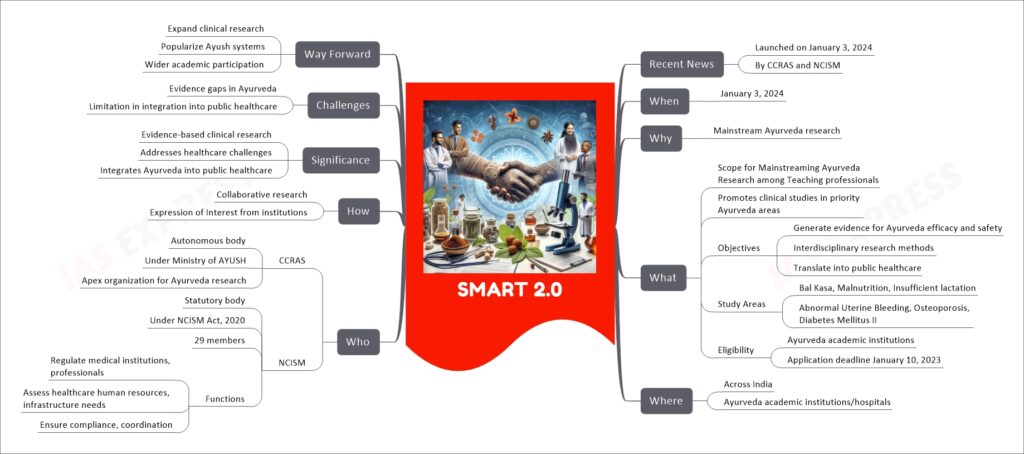SMART 2.0 for Ayurveda Research

SMART 2.0, initiated by CCRAS and NCISM, aims to integrate Ayurveda into mainstream healthcare through evidence-based research. Launched in January 2024, it encourages collaboration among Ayurveda academic institutions to undertake studies in key health areas. The program seeks to close the evidence gaps in Ayurveda, enhancing its role in public health care and fostering a balance between traditional knowledge and scientific methods.
If you like this post, please share your feedback in the comments section below so that we will upload more posts like this.

